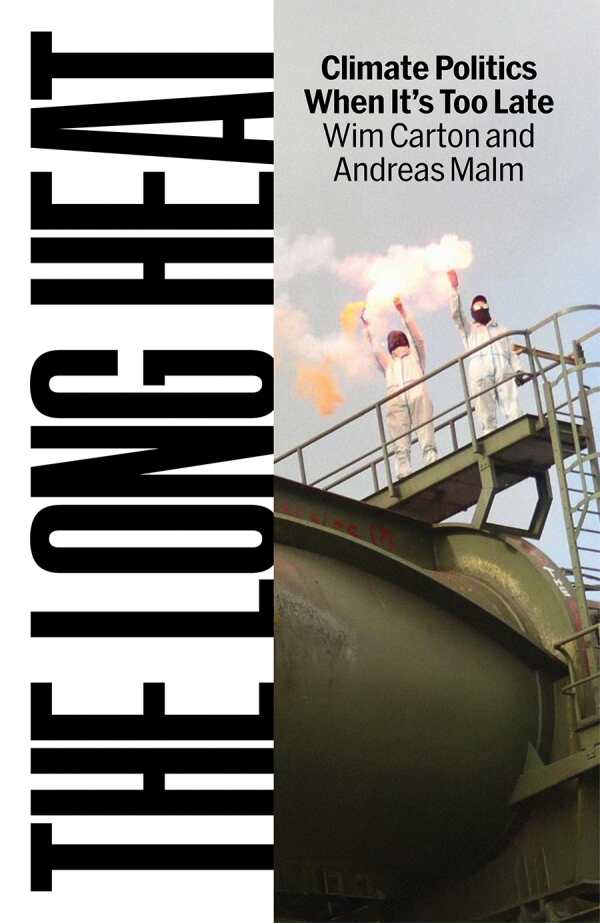The Long Heat
Climate Politics When It’s Too Late
Wim Carton and Andreas Malm’s substantial social science text The Long Heat examines climate politics in the era of irrevocable temperature overshoot.
The book begins by examining the consequences that occur when the 1.5 degrees Celsius target is exceeded—a threshold the world surpasses with regularity. In an era of worsening climate chaos and emboldened fossil capital, Carton and Malm pose the haunting question: What politics remain when prevention has failed?
Split into three parts focused on adaptation, harmful emissions, and geoengineering, the book stands as a guide for surviving the Anthropocene’s most brutal stages. Malm and Carton take direct aim at “muscular adaptationism,” the idea that technology including seawalls, mega-reservoirs, and AI fire detectors might somehow outpace climate catastrophe without confronting its root cause: fossil capitalism. The book argues that these technical fixes often entrench inequality and spur new rounds of ecological harm.
Throughout, the book employs a Marxist critique, laced with references to climate fiction, serious academic literature, and philosophers including Georg Wilhelm Friedrich Hegel and Theodor W. Adorno. In stressing the urgency of the problem, its tone is pessimistic yet animated by flashes of hope, with attention given to movements like Les Soulèvements de la Terre, whose resistance to French megabassines is a blueprint for environmental militancy.
Academic and dense in places, the chapters follow a repetitive pattern, presenting technological strategies, dismantling their promises, and exposing their capitalist underpinnings. The book is intellectually rigorous, though, and its contents page makes navigating its work straightforward.
The Long Heat is a complex and insightful social science book that chronicles late-stage climate politics.
Reviewed by
pine breaks
Disclosure: This article is not an endorsement, but a review. The publisher of this book provided free copies of the book to have their book reviewed by a professional reviewer. No fee was paid by the publisher for this review. Foreword Reviews only recommends books that we love. Foreword Magazine, Inc. is disclosing this in accordance with the Federal Trade Commission’s 16 CFR, Part 255.

